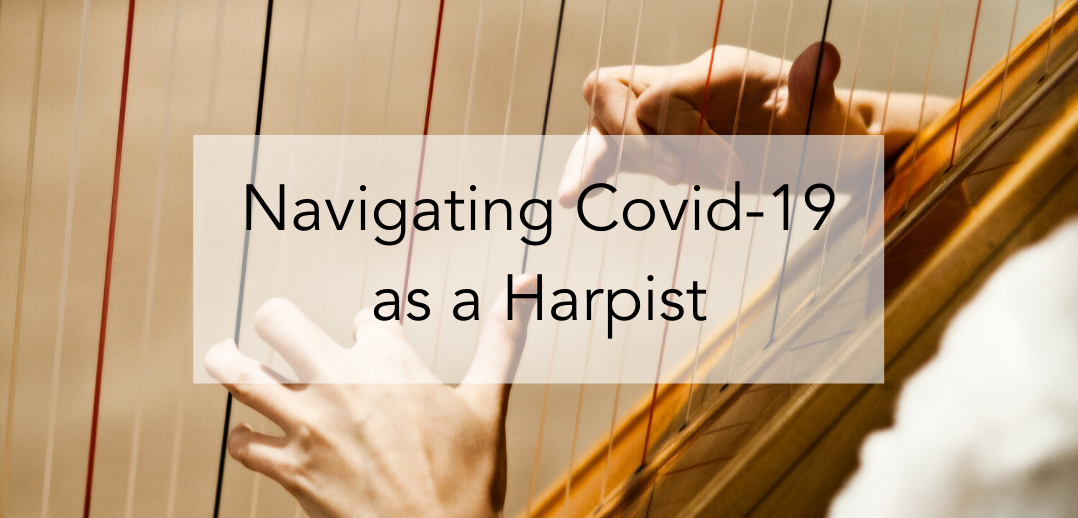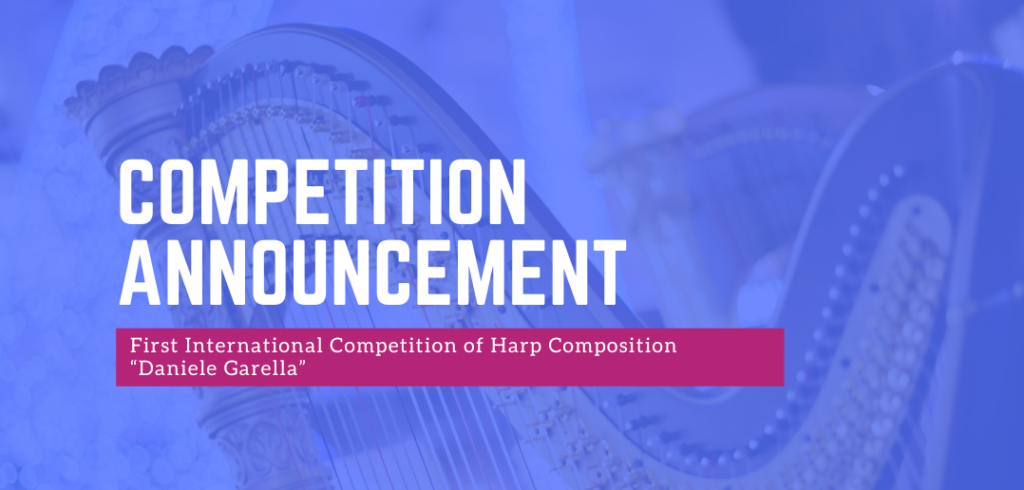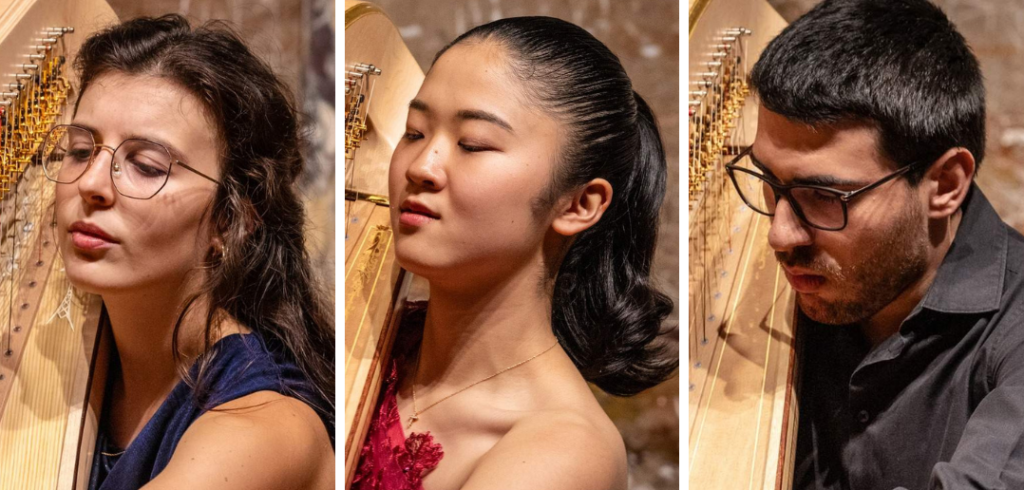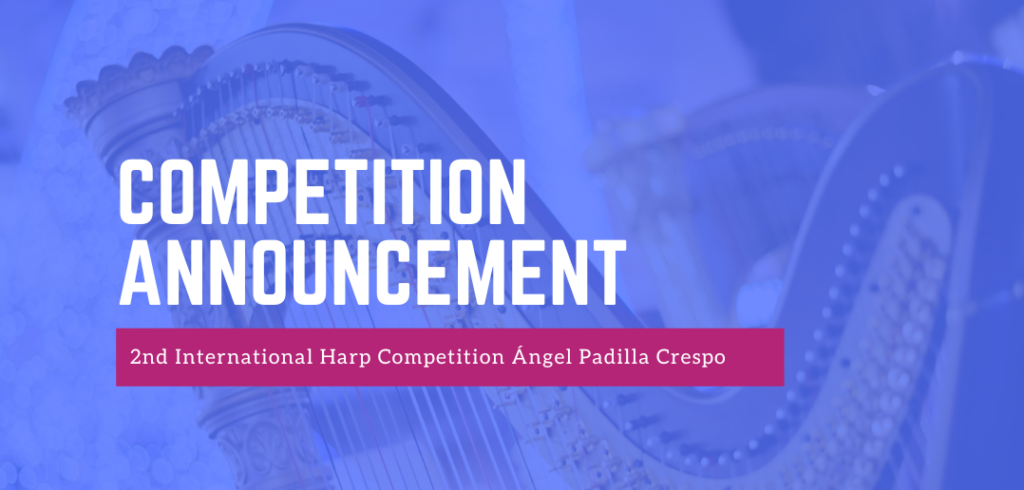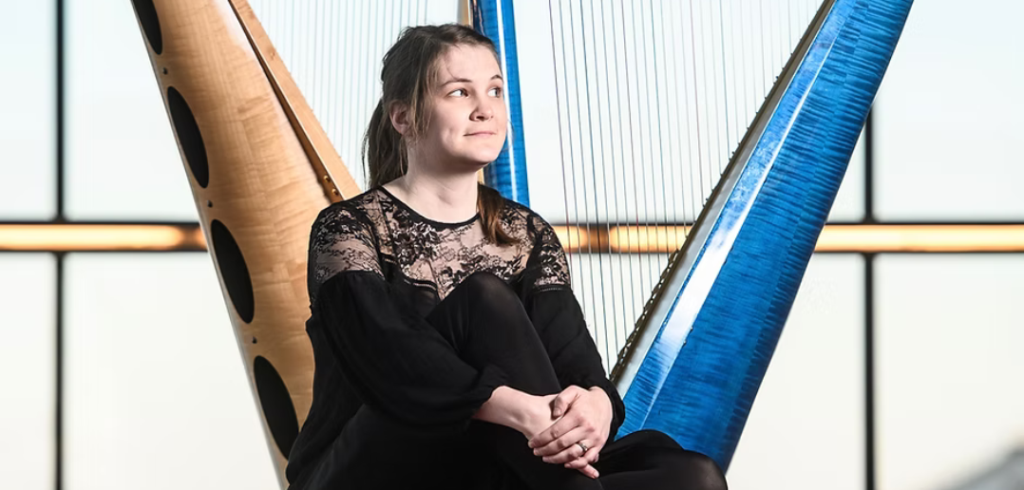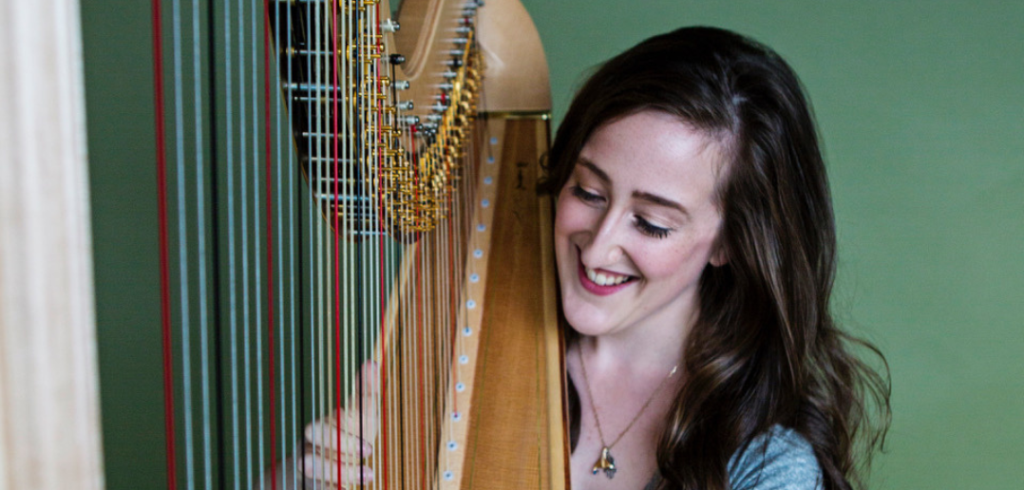UPDATED March 13, 2020
As the COVID-19 virus continues to spread around the world and throughout the United States, we wanted to know what harpists are doing to protect themselves and their students, and how restrictions on large public gatherings and travel is affecting performers.
Keeping your harp free of germs starts with insisting the anyone who touches your harp wash their hands first. That is good harp hygiene to practice in any situation, but becomes especially important in a pandemic.
We talked to veteran harp technician Steve Moss to get some guidance about how to safely disinfect your instrument. Moss says his guidelines are not necessarily endorsed by the harp makers, but in an effort to help harpists stay safe during this pandemic, he offers the following advice with the caveat that every harpist needs to make decisions about disinfecting their instruments that they feel comfortable with.
“While the Centers for Disease Control and Prevention (CDC) is recommending bleach-based and alcohol-based disinfectants, only alcohol products should be used on harps. The CDC recommends a 70 percent alcohol solution, which is most rubbing alcohol from the drug store.
Applying alcohol to the harp may be harmful to the finish and must be used with caution. Test the solution on a less visible area first. Note: do not use denatured alcohol. This will definitely damage a lacquer finish. Use isopropyl (rubbing) alcohol only. If your test surface becomes sticky, then the finish is dissolving and the alcohol should not be used.
If the alcohol is deemed not to mar the finish, apply it to a cloth or towel, not directly to the harp. Wipe surfaces that are normally touched during use. After wiping, put the cloth that was used in the trash.
If the test proves that the alcohol will harm the finish, use a damp towel with a few drops of liquid soap (hand or dish variety). Again, dispose of the towel after use.
Do not use excessive pressure when cleaning a surface. wipe parallel to the grain of any transparent wood finish so that any small surface scratches will be less noticeable.
Older harps or those with a crazed, damaged finish will be more difficult to disinfect than those with an intact finish, and may be less safe to play.
Most harp makers use either a lacquer or a polyurethane finish.
Since harpists touch their strings directly with their hands, this is one of the most important parts of the harp to disinfect. In the short term, it is safe to use alcohol on the strings, even if tests prove it unsafe on the harp’s finish. Again, apply the cleaner to the cloth, not the instrument, to avoid drips and overspray. It is possible that over time this procedure will shorten the life of the string. I would not normally recommend it. However, since strings can be replaced, it is a good idea to err on the side of killing germs rather than preserving the strings.
Finally, harpists should focus on the parts of the instrument that are touched: the strings and various parts of the harp’s neck and body. Places like the mechanism that are not directly touched should not require disinfecting.”
We also checked in with Ray Mooers of Dusty Strings. Located in Seattle, Washington, this instrument maker is right in the middle of one of the United States COVID-19 hot spots. In fact, we called Mooers, he was out purchasing supplies to make his own hand sanitizer because there is none to be found on store shelves.
Mooers says he and his crew were doing their best to stay healthy and safe in their factory, as well as their separate instrument shop and school. Sanitizing instruments is a subject Mooers and his team at Dusty Strings had actually looked into about five years ago at the request of many therapeutic harpists who play their harps in hospital settings. Mooers actually tested the long term effects of sanitizing the harp’s wood using sterile alcohol swabs over the course of one month. Twice a day for a month, they sterilized the wood, and after the month, compared the sterilized wood to unsterilized wood, and they found no discernible difference between the two. You can check out Dusty Strings’ complete experiment on their website. Here’s the basic method they used to sanitize their instruments in their test:
Using sterile alcohol swabs and a soft cloth, thoroughly wipe a section of the harp. Workingly quickly so as to not let the alcohol soak in, use the cloth or towel to dry the area. Repeat as necessary.
Mooers notes that alcohol is a solvent, so limiting its contact with your harp’s lacquer is important. That’s why he recommends doing small sections at a time rather than swabbing the entire harp and then drying it. He also noted that different harp makers use different sealants on their instruments, so you should find out how your harp has been treated before trying anything.
When it comes to sanitizing the strings, using isopropyl alcohol will not harm nylon strings. However, he has not tested it on gut strings.
Since doing this experiment, Mooers said he visited with a harpist friend and customer, Angi Bemiss from Atlanta, Georgia. Bemiss has played in a couple local hospitals for many years. Mooers went with Bemiss to one of the hospitals where she kept a harp, a cart that her husband made, stool, music stand, music and a battery powered sanitizing wand. “No alcohol wipes or gels in her kit,” says Mooers. “If I were playing in hospitals or schools, I’d get one of these!” Unfortunately, a quick internet search for this type of sanitizing wands only turned up options that are currently out of stock. Maybe something to consider in the future.
Travel restrictions and bans on large public gatherings are throwing upcoming concerts and harp gatherings into uncertainty. The Virginia Harp Center (VHC) announced on Wednesday March 11 that it was canceling its festival, scheduled for March 20-22 in Arlington, Virginia. “It’s a big disappointment, but we just had to cancel for everyone’s safety.” says VHC Artistic Director Megan Hoeflicker. “We don’t want to be part of the problem. I’ve never been in a situation like this before. I really feel badly for everyone who wanted to come. We were all really looking forward to it.”
Hoeflicker said she started planning the Virginia Harp Center Festival almost a year ago, which would have brought more than 100 performers and participants together from across the United States and several foreign countries. “It was going to be a good crowd, which makes it disappointing.” Hoeflicker says the VHC is working on finalizing a date to reschedule the festival, which it hopes to announce soon. It is also giving full refunds to all of the festival’s registered attendees, and is working with its credit card processor to figure out those logistics. Not surprisingly, credit card processors are swamped with businesses needing to refund canceled plans because of COVID-19.
On Monday afternoon, March 9, after rehearsing their annual education program that reaches thousands of local students, the musicians of the Rochester Philharmonic Orchestra (RPO) were informed that their concerts would be canceled through April 15. The orchestra shares its venue, Eastman Theater, with the University of Rochester, which decided to shut down operations as a precaution.
“It’s been pretty crazy over here in Rochester!” says RPO principal harpist Grace Browning. “While this came as a major disappointment to the orchestra and the community, we feel incredibly grateful to be able to livestream our final concert to schools throughout the greater Rochester area and to record for future use.”
With a suddenly empty performing schedule, Browning says she’s trying to make the best of it. “Moving forward, I hope to continue to engage our audiences virtually with performance videos, interviews, and live-streaming through social media and newsletters, and to think creatively about how to keep the music alive during the hiatus.”
Browning also recommended an article she found helpful for how musicians can navigate this uncharted territory. It’s written by Lisa Husseini, a former employee of the New World Symphony and a coach for musicians and entrepreneurs:
Michelle Gott, harp instructor at the University of Arizona was in Iceland with her Harp Fusion student ensemble, which was scheduled to perform March 12, and also this Saturday March 14. The group, which included five harp students, two dancers, a video artist, and Gott, heard the news about travel restrictions on flights from Europe at 1:30 A.M. Thursday morning. “As soon as we heard the announcement, we started packing and went immediately to the bus station to head to the airport,” says Gott. “The airport is 45 minutes from downtown Reykjavik. The airport staff was very calm, but there were hundreds of people trying to reorganize flights. We were unable to get on an earlier flight, so I purchased a one-way ticket for one student who is on an F1 student visa to get her back to the U.S. today. She would not have been able to come back had we waited until tomorrow. The rest of us are reassessing what to do now.”
Gott says if the group is stuck in Iceland, they will try to go ahead with their scheduled performance on March 14. “Even if there’s no audience, we will have the experience of performing our show. Katie Buckley, principal harpist of the Iceland Symphony, has been an absolute gem of a person to us. She offered to cover the parts that we are missing with the student who’s currently on a plane to the U.S.
Gott says her students have remained calm and in good spirits despite the upheaval to their plans. “Nobody has panicked. We are all working together to achieve solutions,” she says.
Many universities and colleges made the decision this week to move all of their classroom teaching online for the short term. Elzbieta Szmyt, harp professor at Indiana University (IU) says everyone is scrambling after IU announced Tuesday March 10 that face-to-face classes would be suspended until April 6.
“I can honestly say that I need to grow up technologically under the new circumstances and do so very quickly,” she says. “All faculty will be teaching classes and lessons exclusively online until April 6 (if not beyond). Sadly, we will not be able to coach chamber music groups. Harp ensembles, as well as all upcoming recitals and orchestra concerts need to be postponed. I just finished attending a web seminar on using Zoom as a teaching tool and will spend my spring break( next week) figuring out how to accommodate all private lessons, masterclasses, and pedagogy classes using the new format. It will be challenging for all parties, taking into consideration that students are encouraged to stay home after the break and some will be in different time zones. The good news is that IU Jacobs School of Music is equipped with state of the art technology and IU’s IT staff is standing by to answer all our questions and concerns. I only hope that this situation is temporary and we will resume our normal activities after April 6.”
Ann Yeung is facing similar dilemmas with her students at the University of Illinois at Urbana-Champaign.
The uncertainty of how long the COVID-19 outbreak will last is causing many to consider how it might affect large harp gatherings scheduled for this summer.
Kathy DeAngelo, director of the Somerset Folk Harp Festival scheduled to take place in July in New Jersey, sent out an email to attendees on Wednesday March 11 to address questions on everyone’s mind. “So far, I am taking a wait-and-see posture. We just don’t know what tomorrow will bring and I’m just not ready to throw in the towel on what I had eagerly anticipated as our 20th milestone year,” DeAngelo wrote in her email. “I’m doing my best to keep a cool head. I’d advise you to do the same.” DeAngelo said she had heard from many concerned attendees wondering if she intended to hold the popular event. Since sending her email yesterday to let harpists know what she is thinking, she said she has received more than 50 responses, most of which were positive and supportive of the wait-and-see approach, with the hopes of being able to continue with plans as scheduled.
The American Harp Society (AHS) also sent out an email to its membership today about its scheduled National Conference to be held in Orlando, Florida in late June. “At this time we have no plans to cancel the Conference, which is over 100 days away. We are working closely with the hotel and with public health officials, and prioritizing the best interests of our members, performers and presenters,” organizers wrote in the email. The AHS did extend the early registration deadline for the conference until April 15 to give harpists more time to assess the situation, and noted the conference hotel’s liberal cancellation policy.
Harp Column will continue to update this story as we receive more information.
CORRECTION: In an earlier version of the article, it was incorrectly stated that Salvi used a polyurethane finish on its instruments. Salvi has switched to using a water-based varnish.





